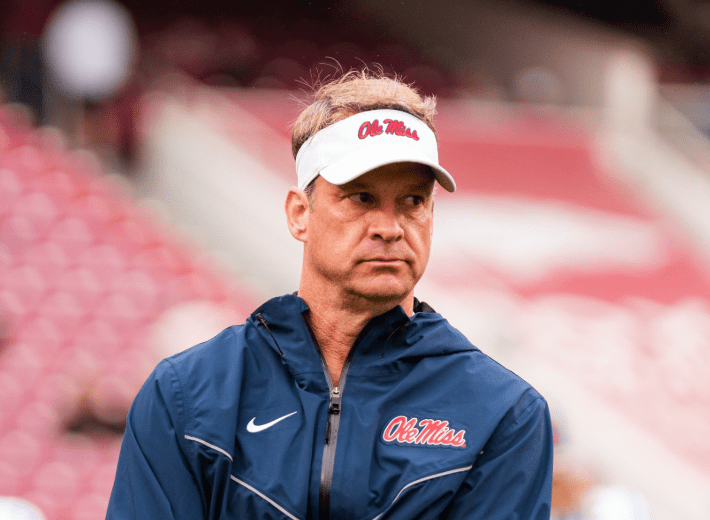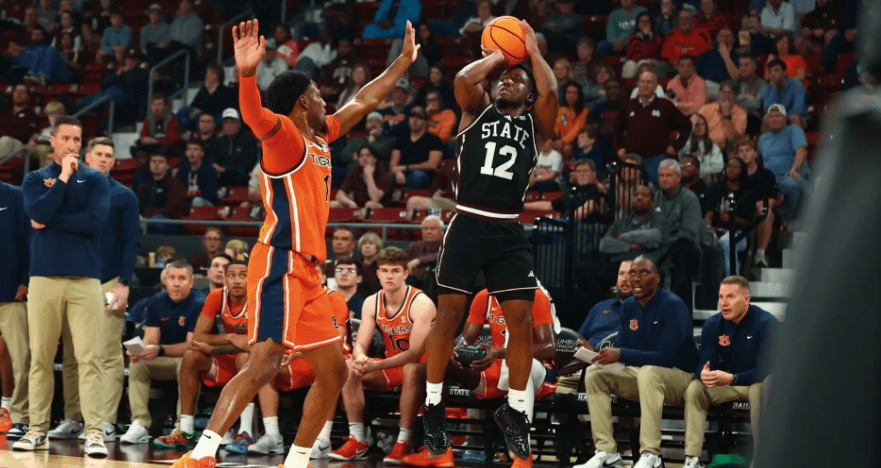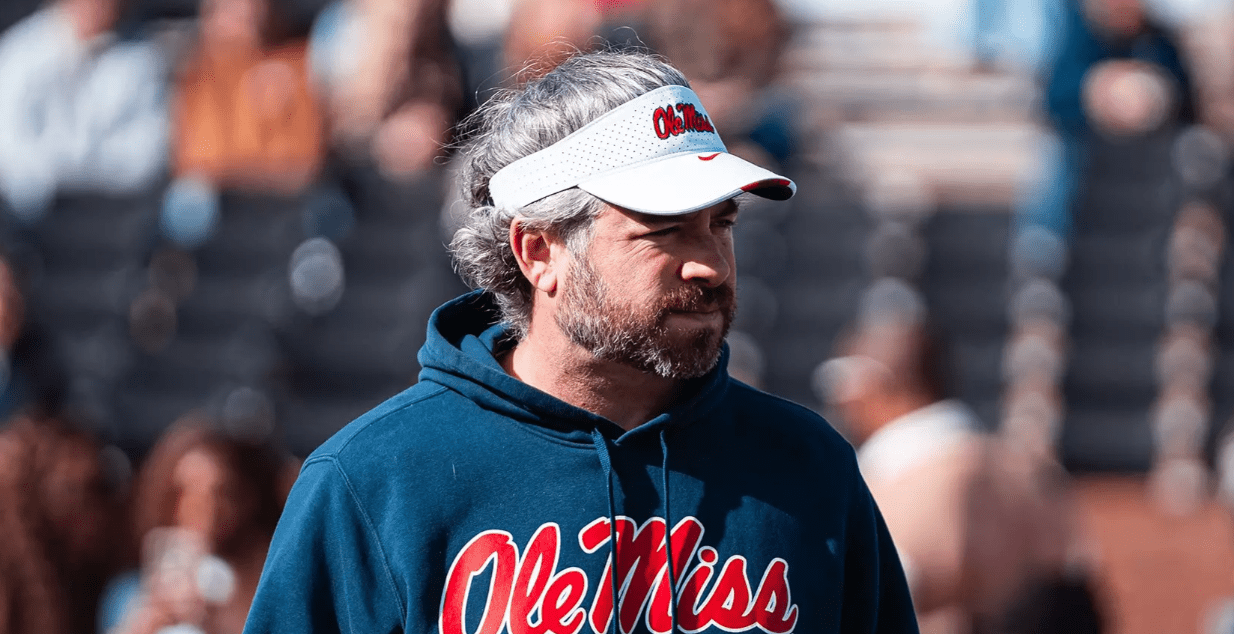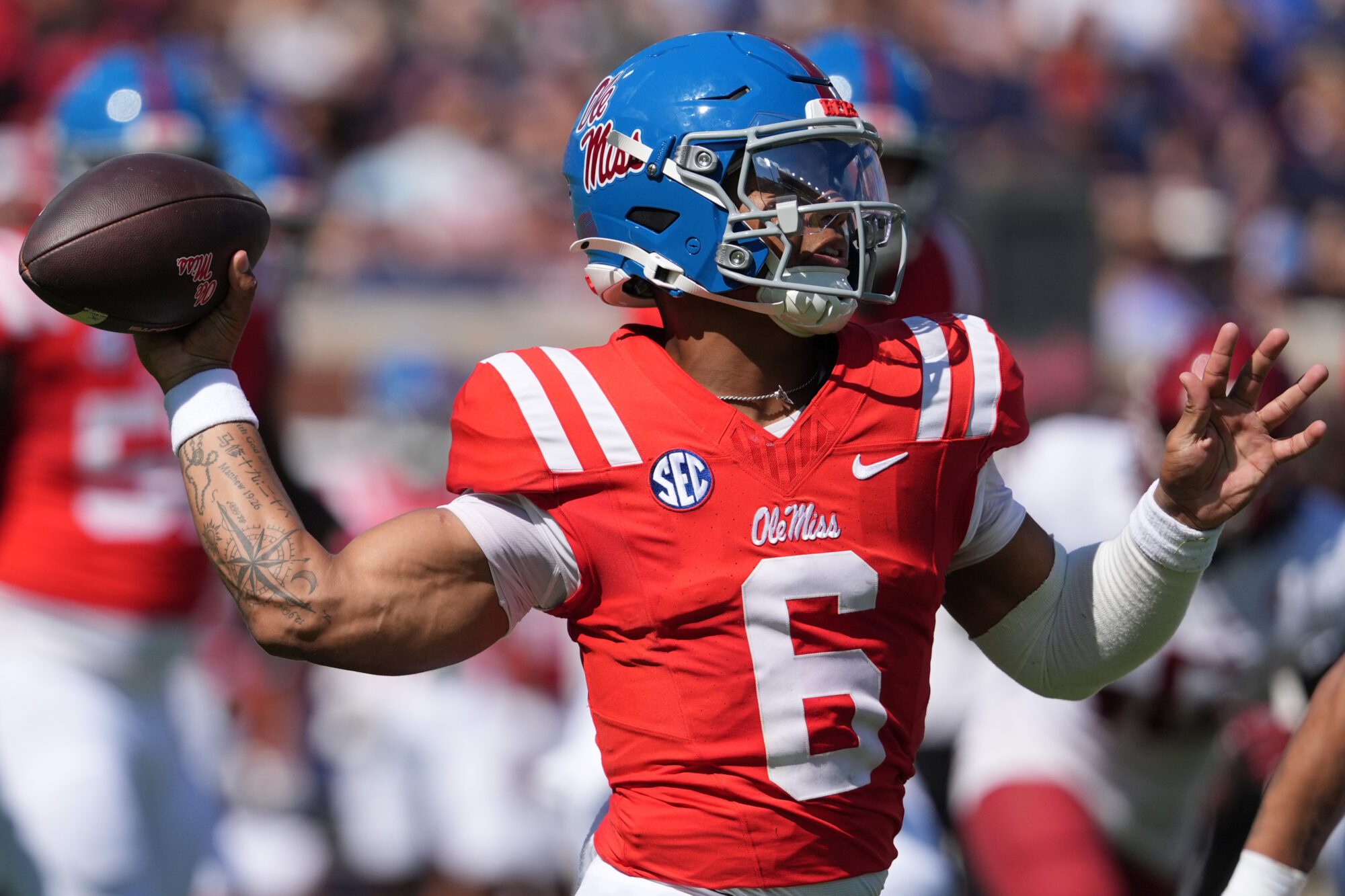
(Photo from OleMissFB on X)
- Kiffin’s done the hard part. He’s built the program. He’s become a transfer portal guru. Consistency is not an unattainable goal.
The narrative from some national media began within minutes of the Rebels’ 24-17 loss at Florida:
“Lane Kiffin has done all he can do at Ole Miss. If he can’t get to the College Football Playoff with this roster, he’s hit the Rebels’ ceiling, and it’s time for Kiffin to move on.”
It was a lazy, hot take that came just weeks after the same roster, compiled by Kiffin’s deft management of the transfer portal, dominated Georgia.
The Rebels didn’t beat Georgia just barely. They controlled the game. They controlled college football’s most successful program of the last half decade. Kirby Smart’s got a mini-dynasty going on over there, ask Texas.
How, after that kind of performance, with those stakes, against that kind of team, can it be that Ole Miss has reached its ceiling?
The Georgia game is the most compelling evidence of Kiffin’s handiwork at Ole Miss.
And if the Rebels can beat Georgia the way they did, they can win the national championship at some point. Just not this season.
The reason: Kiffin, more successful in his first five seasons at Ole Miss than even John Vaught (kids ask your grandparents), didn’t have the Rebels emotionally prepared for each game.
High Summer Expectations
It looked like great timing back in August.
Jaxson Dart was a senior and coming off a monster year as a junior, his second as the Rebels’ starting quarterback. His favored target, Tre Harris, was arguably the best receiver in the country.
The defense returned productive guys along the line like JJ Pegues and Jared Ivey and added game-changing pieces like Walter Nolen, Princely Umanmielen, Chris “Pooh” Paul, and Trey Amos.
All of those key players were on campus as college football unveiled its first 12-team playoff. Not four teams, but 12! Something to which Ole Miss could legitimately aspire.
Oh, there were asterisks with guaranteed Group of Five participation, as well as the five highest-ranked conference champions.
It was never going to be enough to roll in at No. 12, but this Ole Miss roster had the potential to finish at or inside the top 10.
Why didn’t it get there? Well, it’s complicated.
Harris got hurt, and while losing a playmaker of that caliber never helps, other playmakers emerged. You knew Jordan Watkins and Cayden Lee had shown potential, but there are only so many balls to go around. Sans Harris, tight ends Caden Prieskorn and Daequan Wright were a bigger part of the picture too.
Bizarre handling of the running backs
But this dynamite offense never replaced star running back Quinshon Judkins with a championship-level run game.
Henry Parrish transferred in and was thought to be the bell cow before getting hurt, but the real story of the run game was Kiffin’s questionable management of Ulysses Bentley.
Bentley flashed his big-play potential at LSU yet his opportunities remained scant.
In an Egg Bowl where the offense under-achieved his 89-yard touchdown run was a key component in a hard-fought – harder than necessary – 26-14 win.
In the Rebels’ three losses this season it was the offense, not the defense, that struggled to find a groove.
The Florida game, ultimately that third dagger that doomed playoff hopes, included balls that weren’t caught by receivers, a muffed punt and Dart throwing into double and triple coverage.
The Kentucky loss gets a lot of the blame for Ole Miss’ demise, but the fact is the Rebels had overcome that by the time the Gainesville trip appeared on the calendar. Had Ole Miss beaten Kentucky it would have created for itself a buffer zone between in and out, but that’s just shuffling pieces.
Win against Kentucky, LSU or Florida – each of them very attainable – and the Rebels would be a playoff team. As it stood, the team lost all three games by a combined 13 points.
So there’s angst for opportunity lost, but what the Rebels became was pretty darn special. For 10-straight quarters – the back half of Oklahoma, at Fayetteville, a bewitching outpost for Ole Miss for years, and back home for Georgia – this team was a sight to behold.
There seems to be less Kiffin job speculation at the moment than in his first four seasons. He’s a different sort of bird, and he may yet leave, but he’s done enough to show that he – or someone else – can win a national championship at Ole Miss.
What the Rebels need to find
The next step Kiffin needs to take with the Ole Miss program is to find that consistency, that ability to be at the top of your game week-in and week-out that for years marked Nick Saban’s Alabama teams and more recently Smart’s Georgia ones.
He’s done the hard part. He’s built the program. He’s become a transfer portal guru. Consistency is not an unattainable goal on a higher floor past some perception of a ceiling for Ole Miss.











